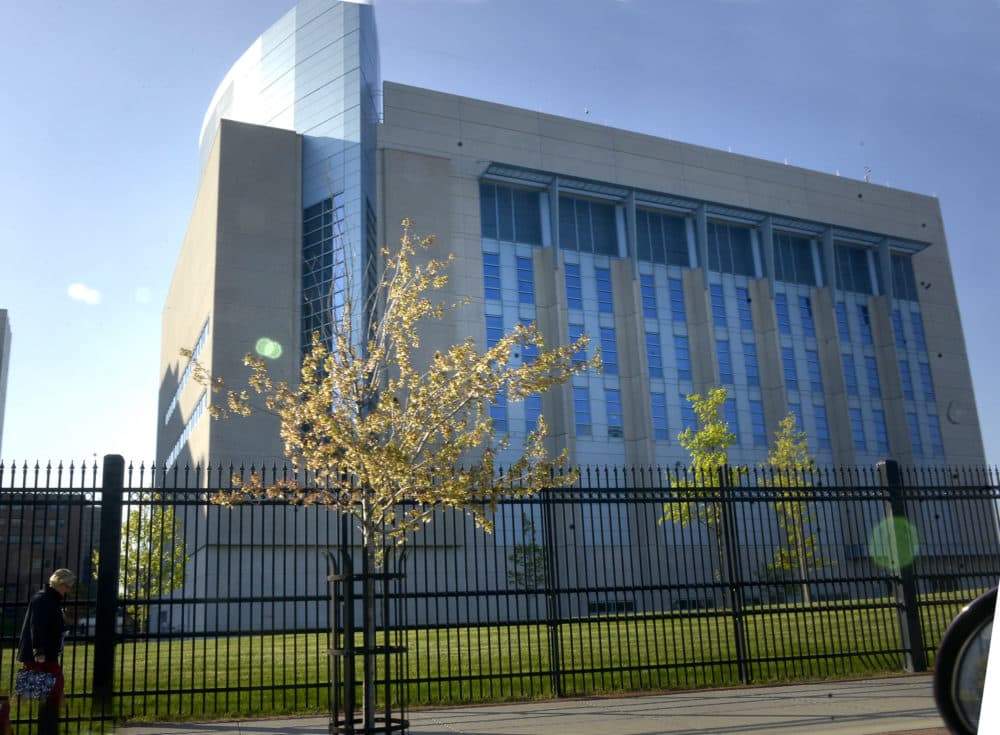Advertisement
BU disputes reports it created a potentially dangerous pathogen

Boston University researchers are disputing reports that they improperly tested a version of the coronavirus, raising concerns about the potential creation of a new pathogen.
The university said researchers did not create a more dangerous strain of the original virus, and that the work was approved by an internal review committee and the Boston Public Health Commission. BU is in discussions with federal health officials about the notification process involving potentially dangerous pathogens.
"This research mirrors and reinforces the findings of other, similar research performed by other organizations, including the FDA," said Rachel Lapal Cavallario, BU Associate Vice President for PR/Social Media. "Ultimately, this research will provide a public benefit by leading to better, targeted therapeutic interventions to help fight against future pandemics."
The research, done by BU's National Emerging Infectious Disease Laboratories (NEIDL), located in Boston's South End, created a hybrid version of the SARS-CoV-2 virus by combining a protein of the omicron variant with the original strain of the virus that emerged in China in 2020. The hybrid version killed 80% of the lab mice infected, making it more deadly than the omicron variant but less deadly than the original strain.
"We spend a lot of time both by training personnel but also by constructing the labs and enhancing the safety and security around these labs to ensure that any virus that's inside these laboratories is not going to get out," said NEIDL Director Dr. Ronald Corley.
The National Institute of Allergy and Infectious Diseases (NIAID), the federal agency that oversees pathogen research and provided some funding for the BU work, requires that research on potential pandemic pathogens undergo additional scrutiny to address safety concerns. Cavallario said BU is continuing talks with NIAID about the notification requirements. Corley said because the hybrid version was not more deadly than the original virus, BU did not have to report it to federal officials.
"We all understand that if you create something that is more dangerous you have a reporting requirement internally which then deals with the question of how you handle the pathogen from that point on," Corley said. "In this particular investigator's case, what he stated in his protocols was that if something more dangerous had been produced he in fact would have stopped research, reported it and destroyed the pathogens immediately."
The research was to determine why omicron subvariants appear to bypass human immunity to SARS-2. The study found that mutations in the spike protein of the omicron variant gave it the ability to circumvent immunity, but they were not the reason behind the difference in the severity of symptoms in those infected.
Advertisement
“Consistent with studies published by others, this work shows that it is not the spike protein that drives omicron pathogenicity, but instead other viral proteins," said the study's lead author Mohsan Saeed. "Determination of those proteins will lead to better diagnostics and disease management strategies.”
The Daily Mail first published the story about the NEIDL research Monday night with some scientists telling the paper that BU is "playing with fire" and the work shows a need for greater oversight of U.S. research on pathogens.
Boston University disputed the Daily Mail reporting, calling it "false and inaccurate."
The university was not required to disclose the precise nature of the research to NIAID or the federal National Institutes of Health because federal monies were not used for the research directly, according to Cavallario. Also, she said that "there was no gain of function with this research," meaning viruses were not intentionally manipulated to become more lethal.
Editor's Note: Boston University owns WBUR's broadcast license. WBUR is editorially independent.
